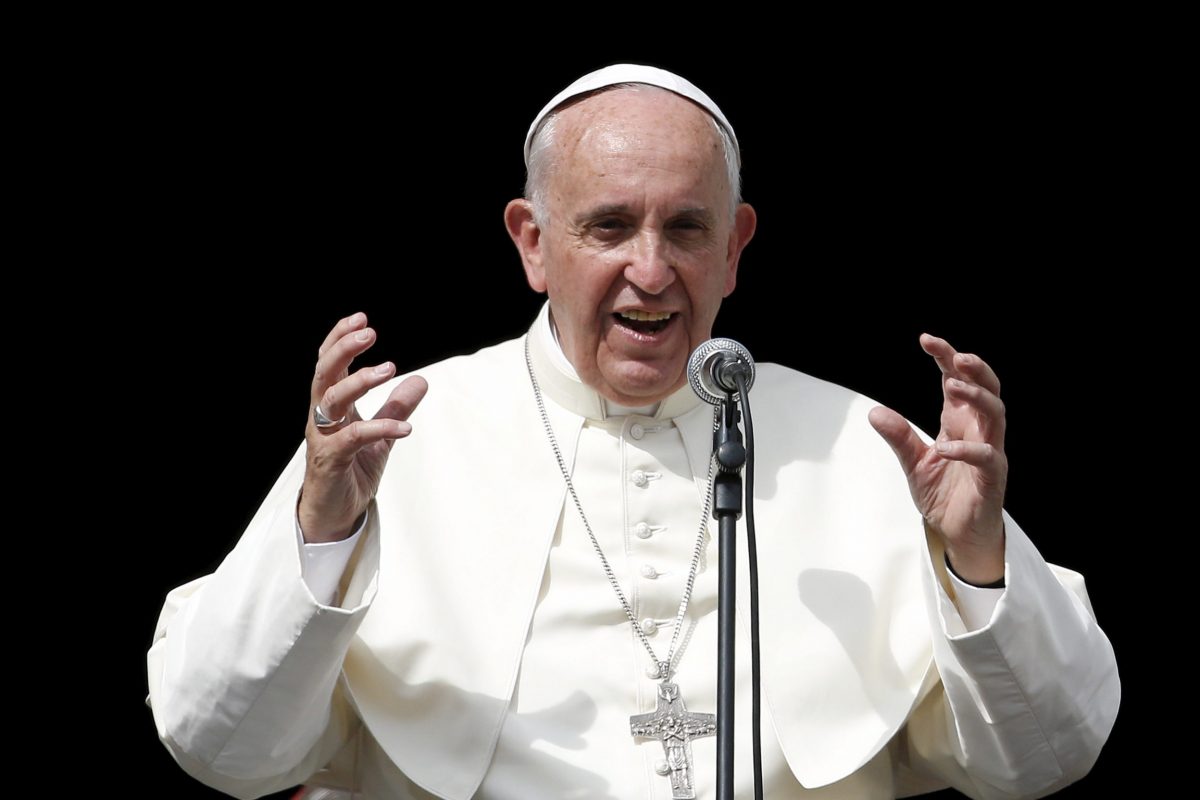Pope Francis Says it is the Responsibility of All to Oppose Human Trafficking

His Holiness Pope Francis called upon all men and women of good will in all nations to take a firm stance against human trafficking during the Angelus on Sunday, in anticipation of the World Day Against Trafficking in Persons on July 30th.
“This plague,” he said “reduces many men, women, and children to slavery for the purpose of labor and sexual exploitation, the sale of organs, of vagrancy and forced delinquency.”
Pope Francis’ concern for victims of human trafficking is long-established. In 2014, he called human trafficking a crime against humanity and has been a leading figure in collaborative efforts between international law enforcement organizations, politicians and religious leaders to fight modern-day slavery.
In a statement delivered at the Organization for Security and Cooperation in Europe (OSCE), in May 2018, the Holy See’s Permanent Representative, Monsignor Janusz S. Urbańczyk, stressed the importance of fighting human trafficking. He identified two vital elements. First, education and awareness-raising efforts should be strengthened within communities to enhance recognition and prevention capacities. Second, multiagency, cross-sectoral and multi-national programs must be promoted to prevent human trafficking.
Relationship between Migration and Human Trafficking
As he addressed the crowd gathered on St. Peter’s Square, on 29 July 2018, Pope Francis noted the relation between migration and human trafficking. “The routes of migration are also often used by traffickers and exploiters to recruit new victims,” he said.
Indeed, migrants seeking to improve their living conditions often become vulnerable to human traffickers. After crossing borders, migrants can find themselves trapped in forced labor. Debts accumulated during their transit and the fear of being deported often prevent migrants from denouncing their abusers.
Human trafficking is present in every country around the world and every industry. “Whether the business is coffee, clothing or construction, this much is clear: no workplace or community is immune to human trafficking,” said William Lacy Swing, Director General of the International Organization for Migration today in a statement.
Father Michael Czerny, SJ, Co-Under-Secretary of the Vatican’s Section for Migrants and Refugees, noted at another OSCE meeting in April 2018, that the end of human trafficking can only be attained by tackling the roots of the problem in the countries of origin of the people being trafficked: endemic poverty, inadequate child protection and lack of access to education.